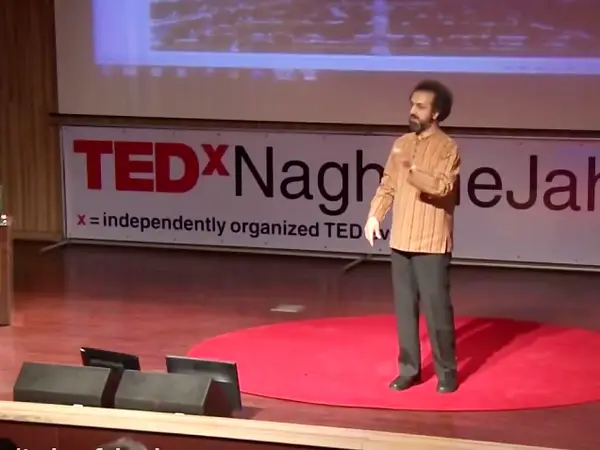Iranian academic Mohsen Renani says, "Iran's government is unable to reform itself" to adapt to the needs of a modern society, and it is too weak to stop change".
Renani is a well-respected professor of economics in the University of Esfahan (Isfahan).
A May 26 post on Renani's Telegram account has become so popular among the academia and the public that 14 other Iranian academics wrote their opinions under his post, to add value or offer their insight on the matter. More than 66,000 Iranians follow Renani's articles on Telegram.
Referring to the current situation of the Iranian society, following the 2022 uprising, Renani wrote: "Let us remember that Iran today needs thoughts more than blood. It needs water more than military power, It needs ethics more than ideology, rationality and understanding of simple facts more than intelligence. It needs life more than death, joy more than sorrow, understanding more than slogans, and sympathy more than hatred."
These emotional words uttered by Renani should be understood in the context of government forces killing more than 500 protesters in the street and jailing thousands who had no legal defense and many subjected to torture.
Renani added: "Societies will evolve and dictators will have to leave the scene sooner or later, with or without bloodshed. But if violence and hatred are produced in the process of their departure, that violence and hatred will haunt us and the next generation in the same way we are paying the price of the movement that led to the nationalization of Iran's oil and the coup in 1953."
Calling for a change in Iranian intellectuals' approach to political activism, Renani said elsewhere in the post: "The intellectuals' mission today is not producing thoughts and ideas. Their mission is to keep the society joyful and the youths lively. Young people are the country's main capital. If they live happily, then we do not have anything to worry about, as they will rebuild the country."
He added: "The government is suffering from the illnesses of old age. It is too weak to rebuild itself and too weak to stop changes the young generation wants. The fact that the government is beginning to act like characters in cartoons is good news. We only need to take care of young people and keep them away from anger and hatred. We only need to stop them losing their hope and fleeing Iran."
In another part of the post, Renani wrote: "The government can no longer manage the country by suggesting economic plans. Whatever the government does in the area of economy will make the situation worse. On the other hand, the Mahsa revolution has turned into the most profound revolutionary movement in Iran's modern history."
He said, "I hope men will not interfere in this movement and will not make the women's cultural revolution violent. …They should not try to replace women or lead them. Iranian men have staged three revolutions in contemporary Iran and messed up everything on all three occasions. The government is in a deadlock, and it will lose, no matter what it does. Only the most foolish government would entangle itself in such a situation. What we need to do now is…to be kind and happy, read books, play music, support working children, give jobs to unemployed youths, give loans to the needy, … respect each other, be ethical, and have mercy on everyone everywhere until this tough time passes."
Alireza Kafaei, one of Renani's critics wrote: "How can we be that patient in the face of all of these crimes, imprisonments and executions and all of these thefts by state officials in the name of religion? They are wasting the country's resources and rob the youths of their hope. How can we dance to that?"
An unidentified critic said: "Renani is suggesting that women who turn to prostitution as a result of poverty, a man who sells his kidney to make ends meet and the Baluch child who do not have shoes to wear, and those who have been blinded by security forces during the protests should dance instead!"
Academic Sajjad Fattahi wrote: "Renani is like a doctor who instead of giving the right medicine to the patient gives him a bunch of poetic words. What he explains and suggests are not accurate enough and that might make the patient's situation even worse."
Alireza Gharibdoost praised Renani for encouraging others to debate the matter. He wrote, "As Renani himself has said elsewhere, progress is not a product of dialogue. Progress is dialogue and that is what Renani is advocating."
